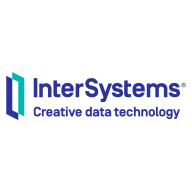

Teradata and InterSystems IRIS are key players in enterprise data management. Teradata appears stronger in analytics, while InterSystems IRIS excels in integration.
Features: Teradata focuses on large-scale data warehousing, advanced analytics, and scalability, making it apt for high-performance analytics. InterSystems IRIS shines with interoperability, real-time analytics, and simplified data handling.
Ease of Deployment and Customer Service: InterSystems IRIS offers fast deployment and seamless integration, along with strong customer service, boosting user satisfaction. Teradata, although requiring more setup, benefits from extensive support options.
Pricing and ROI: Teradata provides flexible pricing with cloud and on-premise solutions, focusing on cost efficiency and high ROI. InterSystems IRIS, while more expensive upfront, offers significant returns via integration efficiency and a unified development environment.
| Product | Market Share (%) |
|---|---|
| Teradata | 4.0% |
| InterSystems IRIS | 0.7% |
| Other | 95.3% |

| Company Size | Count |
|---|---|
| Small Business | 28 |
| Midsize Enterprise | 13 |
| Large Enterprise | 52 |
InterSystems IRIS is a data platform setting a new level of performance for rapidly developing and deploying important applications. All of the needed tools and capabilities are provided in a reliable, unified platform spanning data management, interoperability, transaction processing, and analytics.
Teradata is a powerful tool for handling substantial data volumes with its parallel processing architecture, supporting both cloud and on-premise environments efficiently. It offers impressive capabilities for fast query processing, data integration, and real-time reporting, making it suitable for diverse industrial applications.
Known for its robust parallel processing capabilities, Teradata effectively manages large datasets and provides adaptable deployment across cloud and on-premise setups. It enhances performance and scalability with features like advanced query tuning, workload management, and strong security. Users appreciate its ease of use and automation features which support real-time data reporting. The optimizer and intelligent partitioning help improve query speed and efficiency, while multi-temperature data management optimizes data handling.
What are the key features of Teradata?
What benefits and ROI do users look for?
In the finance, retail, and government sectors, Teradata is employed for data warehousing, business intelligence, and analytical processing. It handles vast datasets for activities like customer behavior modeling and enterprise data integration. Supporting efficient reporting and analytics, Teradata enhances data storage and processing, whether deployed on-premise or on cloud platforms.
We monitor all Relational Databases Tools reviews to prevent fraudulent reviews and keep review quality high. We do not post reviews by company employees or direct competitors. We validate each review for authenticity via cross-reference with LinkedIn, and personal follow-up with the reviewer when necessary.